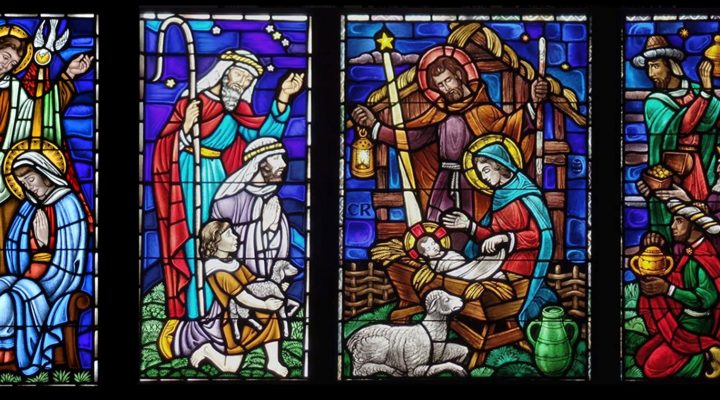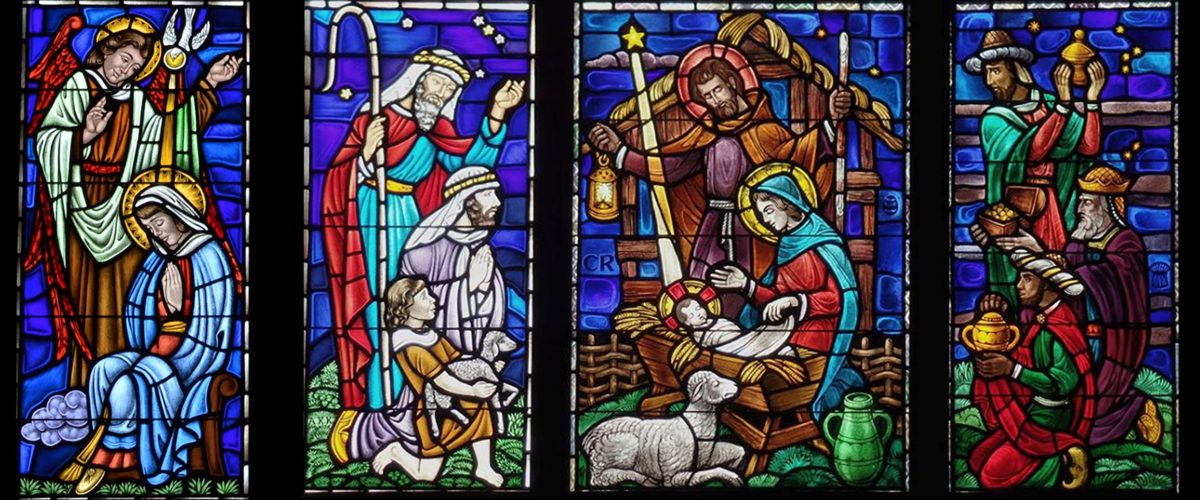BNG is pleased to partner with Baker Publishing Group and Perkins School of Theology at SMU to present a twice-weekly Advent reflection series written by Jack Levison. The reflections will be published every Tuesday and Thursday throughout the season.
In Matthew’s Gospel, there is no gush of the Spirit, no filling, no songs of celebration. There is political intrigue: a paranoid king destined to destroy his family — the Jewish historian Josephus tells us as much — and anyone else who gets in his way.
There is propriety, too, the impulse to divorce a woman like Mary, who was patently promiscuous, or so it seemed to her betrothed. There is urgency, as well, the struggle to survive as refugees in Egypt.
Angelic canticles in heaven and the poetry of wonder on earth, a caterwauled concatenation of praise and prayer above and below, belong in the Gospel of Luke. Matthew’s Gospel features the unforgiving lines of political and personal scandals.
It is here, at risk of personal scandal, where a staid Matthew introduces the Holy Spirit. Matthew’s Jesus dots his i’s and crosses his t’s; not a jot or tittle will pass away from Torah, he claims.
“The Holy Spirit does not just avert scandal; the Holy Spirit will convert scandal into virtue.”
So does Joseph before him. Joseph, too, wants to get it right in the face of potentially ruinous scandal. He will dismiss Mary properly, inconspicuously. But Joseph’s plans are shattered. Enter the Holy Spirit, who changes everything by transforming a disgraceful pregnancy into a virtuous birth. The Holy Spirit does not just avert scandal; the Holy Spirit will convert scandal into virtue.
When Joseph had resolved to dismiss Mary quietly — itself an exercise in constraint — “an angel of the Lord appeared to him in a dream and said, ‘Joseph, son of David, do not be afraid to take Mary as your wife, for the child conceived in her is from (the) Holy Spirit’” (Matthew 1:20).
There is something surprisingly eerie, inexact, about Matthew’s language here. He does not say that what is conceived is from the Holy Spirit but from holy spirit — ek pneumatos estin hagiou in Greek. Neither time in this short scene does he deploy the definite article, so that we can say, “Oh, that Holy Spirit!” Matthew could just as well be saying, “the child conceived in her is from a holy spirit.”
It may be that mystery has eclipsed accuracy, and we should leave it at that. Probably not — because lying in the background of this story wafts the inevitable scent of the Old Testament.
Two passages in the Old Testament — and only two — refer to holy spirit. They are so different from one another that they call for entirely different interpretations of Jesus’ birth, depending upon which one you think lies behind Matthew’s Gospel. Both Old Testament passages endow this story with richness and resonance; without them, our understanding of Jesus’ birth sounds tinny by comparison.
The first passage occurs in a lament in Isaiah 63, where the prophet pleads, “Where is the one who put within them his holy spirit?” (Isaiah 63:11). The prophet is perplexed, confused even, by the absence of the Spirit in his day, especially when he looks back to the exodus, the story of Israel’s liberation, when, he recalls, God put God’s holy spirit within Israel. Then, he believes, God led the people from Egypt into the promised land by means of God’s Holy Spirit, whom God put within them. The Holy Spirit was like the pillars of cloud and fire or the angel God authorized to lead the people to safety.
“Can there be any surprise that the Holy Spirit, which inspired the exodus, should now show up to inspire the birth of the Messiah?”
Can there be any surprise that the Holy Spirit, which inspired the exodus, should now show up to inspire the birth of the Messiah? After all, Matthew himself sees the parallel between Israel’s secure ascent from Egypt over a thousand years earlier and the ascent of Jesus’ family from Egypt in safety (Matthew 2:13-23).
Imagine that. Mary’s pregnancy is not due to happenstance or, worse still, infidelity. Not at all! The Holy Spirit in her is the same Holy Spirit that liberated Egypt from an irascible tyrant; Herod the Great stands no chance against the sway of this Holy Spirit.
From the vantage point of Isaiah 63, the birth of Jesus, occasioned by the Holy Spirit within Mary, is the culmination of a long story of leading, designing and delivering. It may not be too much to say, in light of Isaiah 63, that the water of Mary’s womb, awake now with the Holy Spirit, is a latter-day Red Sea, through which Israel, alert to the Holy Spirit within them, traipsed triumphantly to liberty.
This is a great deal to invest a single birth with, but this was the birth of the Messiah, as Matthew put it, after all.
 Jack Levison holds the W.J.A. Power Chair of Old Testament Interpretation and Biblical Hebrew at Perkins School of Theology at Southern Methodist University. He is known for his groundbreaking work on the Holy Spirit and topics both biblical and theological. This column is excerpted from his book An Unconventional God. Used here with permission of Baker Publishing, © 2020.
Jack Levison holds the W.J.A. Power Chair of Old Testament Interpretation and Biblical Hebrew at Perkins School of Theology at Southern Methodist University. He is known for his groundbreaking work on the Holy Spirit and topics both biblical and theological. This column is excerpted from his book An Unconventional God. Used here with permission of Baker Publishing, © 2020.
Also in this Advent series:
Advent reflection: An infinity of grace


